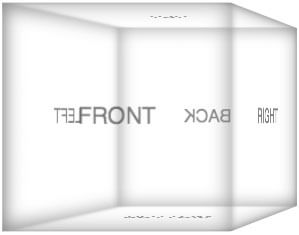Destructuring and Function Arguments
The JavaScript language has benefitted from some really awesome new features over the past few years, including arrow functions, the spread operator, and default function argument values. Even if your browser doesn't yet support proposed JavaScript API syntax additions, you can use a tool like Babel in your Node.js app to take advantage of them today.
One of my favorite new(ish) JavaScript features is object destructuring. If you aren't familiar with JavaScript destructuring, it basically provides a shorter syntax for extracting an object key's value without the dot notation mess:
// A sample object
const myObject = { x: 1, y: 2 };
// Destructuring
const { x, y } = myObject;
// x is 1, y is 2
The basic syntax for destructuring is fairly simple but using destructuring with function arguments can be a bit more difficult when those argument values should have default values. The following is a function with arguments having default values:
function myFunction(text = "", line = 0, truncate = 100) {
// With default values, we can avoid a bunch of:
text = text || "";
line = line || 0;
truncate = truncate || 100;
}
Regardless of language, if a function takes more than ~3 parameters, it's probably best to pass in an object name options or config that contains possible key/values; the equivalent would look like:
function myFunction(config) {
}
// Usage
myFunction({
text: "Some value",
line: 0,
truncate: 100
})
What if you want to use destructuring in JavaScript function arguments though? The following function signature would become:
function myFunction({ text, line, truncate }) {
}
If you want to define defaults in the function configuration, you'd use the following:
function myFunction({
text = "",
line = 0,
truncate = 100
} = {}) {
// Even if the passed in object is missing a given key, the default is used!
}
Setting a default with = { } is important; with no default the following example would error:
TypeError: Cannot destructure property `key` of 'undefined' or 'null'
Destructuring is an awesome language feature but can lead to confusion and even errors. Hopefully the basics provided in this guide can help you to navigate using JavaScript destructuring with functions!





I think you’ll get the expected behavior if you provide individual defaults for each option as well as a fallback empty-object default for the options arg:
function myFunction({ text = "", line = 0, truncate = 100 } = {}) {...}Otherwise if you pass eg an options object with just one option set, the other defaults won’t kick in
Excellent point! I’ve updated the post to fix my oversight. Thank you!
How can I use this in class constructor? any views?
Hi David,
You’re article on destructor is simple but in real application we have to deal with nested object. I requested you can you write blog for nested objects.
Thanks
For anyone trying to do this with TypeScript, here’s the tricky bit (RequestParams is an interface defined elsewhere).
{ offset = 0, limit = 0, pageSize = 25, filter, sort, }: RequestParams = {} as RequestParamsI am curious.. if (using the code from the article) I want to allow a single parameter passed as a string to represent the string with the line/truncate params as their default.. is there a way to do that within the function params? or do i have to rebuild the params separately?
I see benefits with deconstructing with typing (via TypeScript) or having default values, but using it with just the deconstruction can lead to a lot of confusion in calling that function ie, the object param must have the necessary keys, in fact any object with those keys could be passed into the function, and if a user doesn’t know the function signature it gets messy and hard to follow.